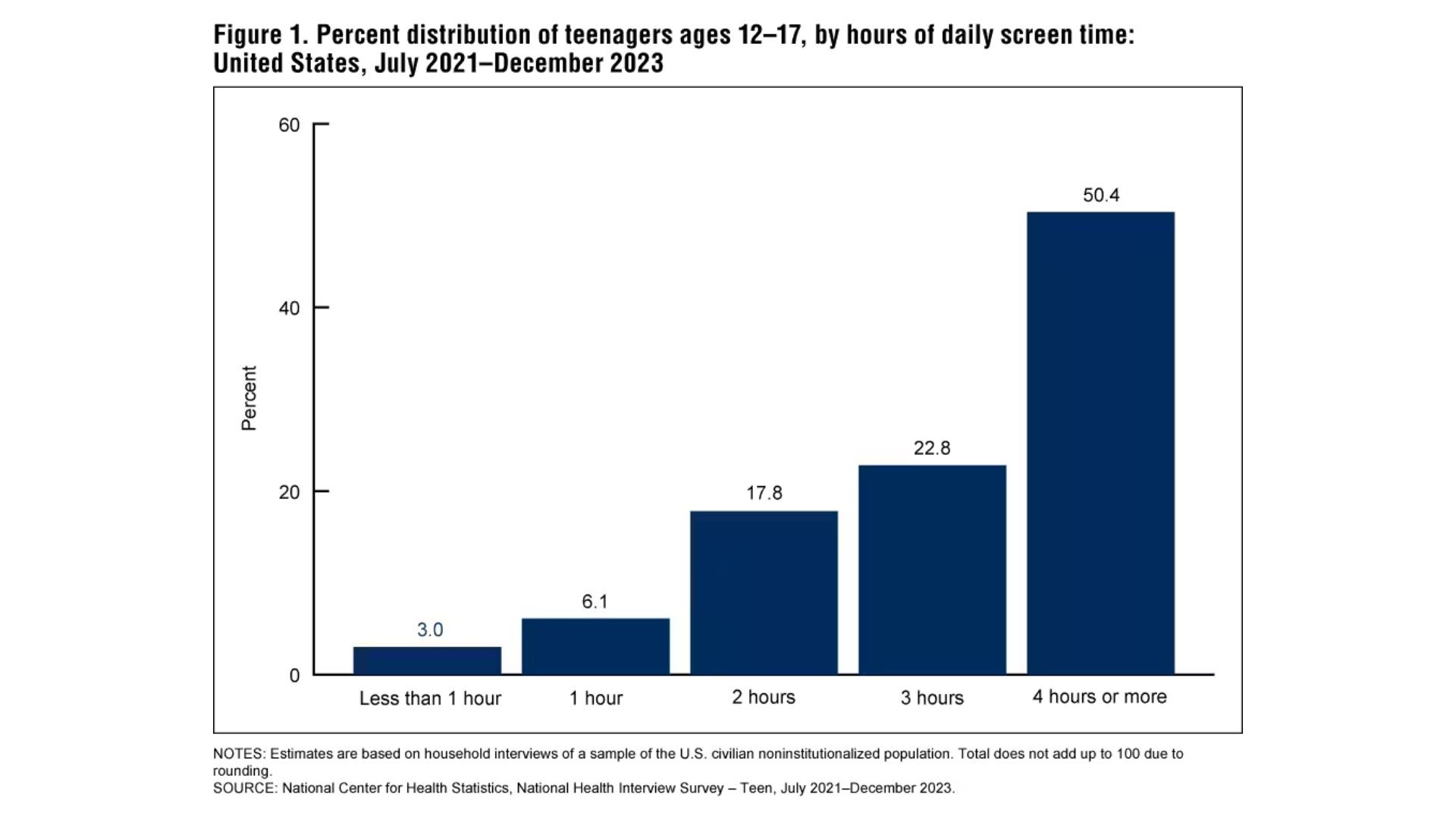How to Cut Down on Screen Time, Cell Phone Use in 2025
Published:
Jan 3, 2025
,
11:23 a.m.
ET
Key Points
Excess screen time can negatively impacts kids, teens and adults
Screen time can lead to mental, physical and emotional harm
Technology addiction is a worldwide problem
Strategies to limit screen time can help reduce technology addiction
Technology is necessary and unavoidable in this day and age. Screens are used by children at an average of four months old, compared to twenty years ago when that age was four years old. Almost 50% of Americans feel they are addicted to their phones, with 60% of teens addicted to social media and 35% of the general population feeling addicted to technology. With a concerning number of people seeking out support for technology addiction, having tactics to manage screen time can greatly reduce the likelihood of developing a problem.
Tips for curbing your cell phone use this year
Turn Off Notifications or Set Do Not Disturb Times
Our phones are constantly lighting up with text notifications, app alerts and reminders. A good way to reduce the amount of time you check your phone or lessen the temptation is to turn off notifications or set certain times of day where your phone is in do not disturb or focus mode. Reducing the urge to check your phone can help temper the impulse over time.
Manage App Use
Most phones have a way to view screen time usage and put limits on individual apps. On the iPhone, Screen Time lets you know how much time you’ve spent on every app and lets you block out times of day using a feature called Downtime. You can also take inventory of the apps on your phone once or twice a year and delete any that you have not used in the last few months.
Set Up Grayscale
Most devices have an option to change the brightness, tone and color of their screens. The bright colors on our phones, mostly the apps, are visually enticing and stimulate the reward center of our brains. This cycle of dopamine boosts makes it difficult to stop checking your phone. Turning on the color filter to grayscale makes the phone screen less stimulating and addictive.
Do a Digital Detox
There are a lot of different ways that you can go about doing a digital detox. Some people set days or times they will not be online or respond to emails, some use strict blockers on their phone to limit app use and some people even choose to delete all of their social media apps for a certain length of time to really take away the temptation. Whatever way you choose to detox from technology, make sure your goal is sustainable and fits your specific needs. Research has found that people who make a concerted effort to significantly reduce or eliminate their technology and social media use have lower rates of stress, depression, loneliness and higher self-worth.
Take Up New Hobbies
While technology has a lot of great uses, it has become too present in our everyday lives. Joining a new activity like recreational sports or a book club can help you meet new people and involve yourself in something that doesn’t require a screen. Activities that stimulate endorphin production, like physical activity, time with loved ones or learning a new skill can start to replace the dependence you once had on technology.
How much screen time is too much for kids?
Screen time and children have been a hot topic among parents and professionals in recent years. An excess of screen time can negatively impact a child's physical and emotional health. Kids who are given screen time to ease boredom, temper a tantrum or out of ease struggle more in social scenarios versus those who have less screen time. There are certain types of digital content that professionals have deemed safe for kids such as shows that teach numbers, colors, letters, shapes and school readiness.
Professionals recommend that kids that are 2 to 5 years old should not view more than 1 hour of quality, co-viewed content per day. Kids between the ages of 6 through 12 should be limited to no more than 2 hours of screen time per day and parents should be aware of what content is being viewed. Teenagers can have a little more free reign, but parents should set the expectation that teens have media free time during the day as well, such as family time or being outside.

Impacts of excessive screen time in adults
Children are not the only ones that screen time can negatively impact. Adults are susceptible to social, mental and emotional harm when screen time replaces meaningful interaction with others and takes precedence over other priorities. Since the COVID-19 pandemic, adult screen time has reached a staggering 19 hours per day at the highest level in some. It is recommended that adults keep screen time to two hours or less per day to help maintain a healthy balance. Common negative impacts of excessive screen time can include:
Eye strain
Tech neck
Sleep disruption
Mood swings
Anxiety
Depression
Low self-esteem
Technology addiction stats and trends from 2024
A study from Statista found that 40% of Americans ages 18-22 are addicted to social media, with 70% of teens meeting the criteria for technology addiction and spending an average of 5 to 9 hours per day on their phones.
Another study revealed that 35% of the overall population are addicted to some form of technology and over 60 million people worldwide struggle with video game addiction. The most used social media sites are TikTok, Instagram, YouTube, Twitch and Facebook.
Specialized treatment for technology addiction
Individual or group therapy are both common forms of treatment for social media and technology addiction. Types of therapy that are used to treat these include Cognitive Behavioral Therapy, Dialectical Behavioral Therapy and Motivational Interviewing. With these therapy techniques, a therapist helps an individual understand their underlying triggers for their addiction and how to develop healthier coping mechanisms.
Virtual therapy is also a beneficial option for those seeking out technology addiction treatment. Remote therapy provides more flexibility and convenience for those who may not have the specialized treatment in their immediate area. Birches Health offers 100% remote specialized treatment for technology addiction.
Reach Out to Birches Health
Call 833-483-3838
Email hello@bircheshealth.com




